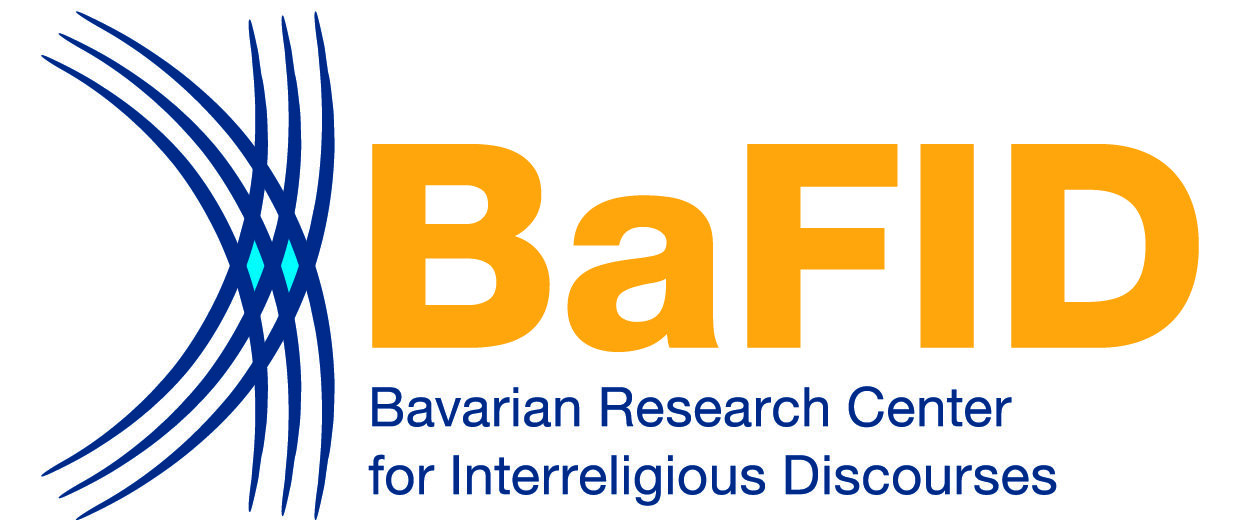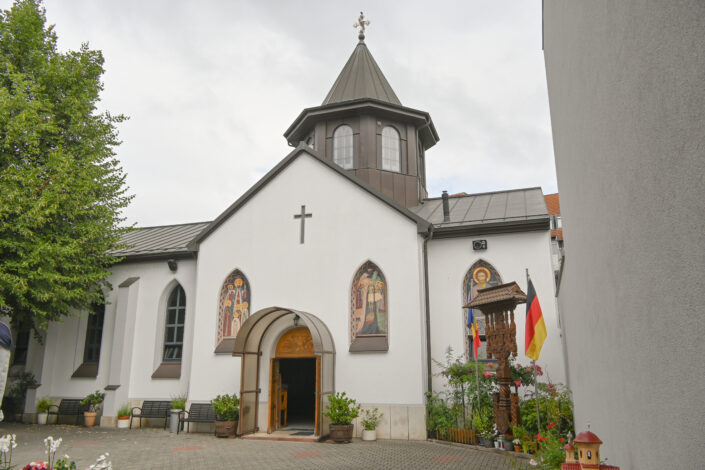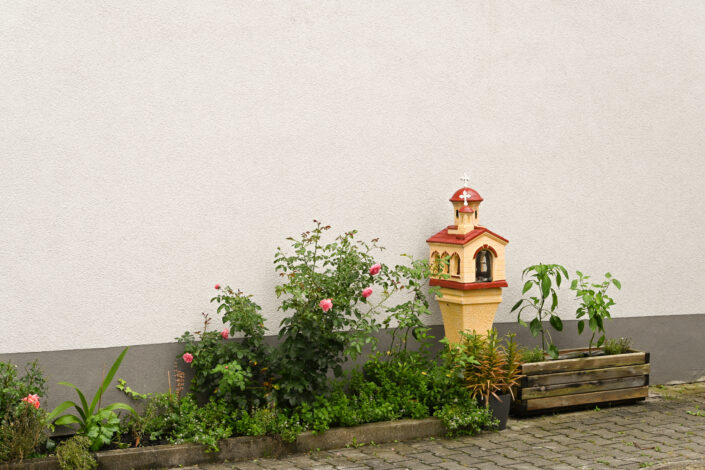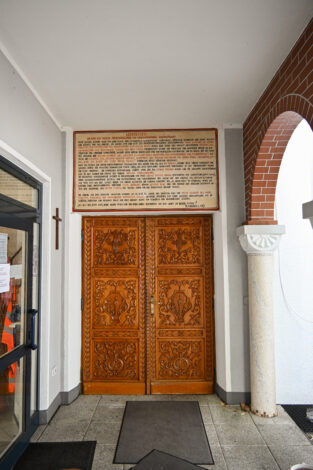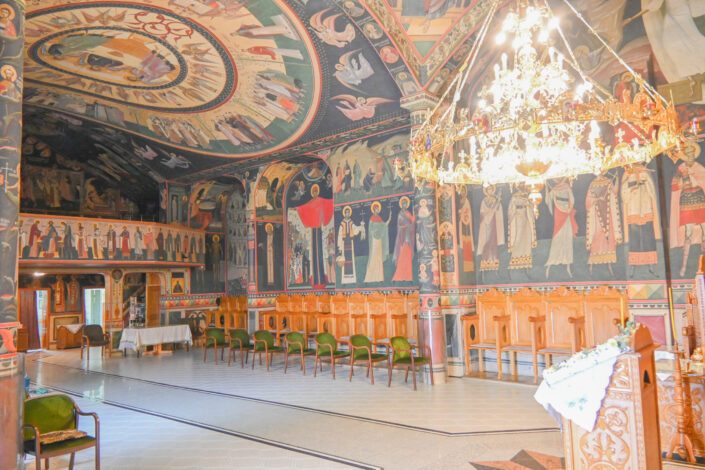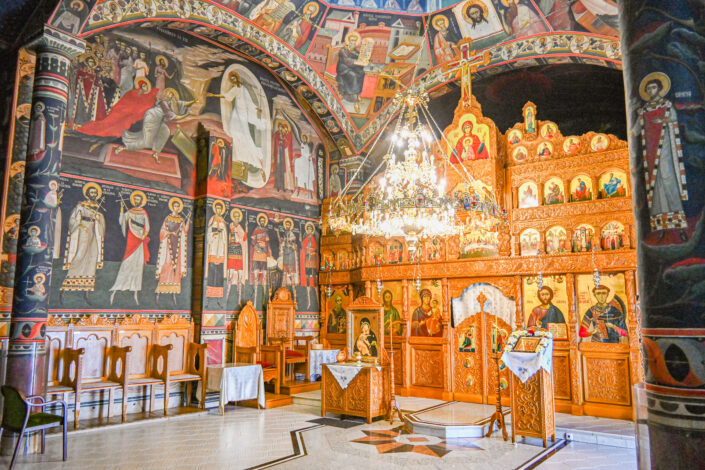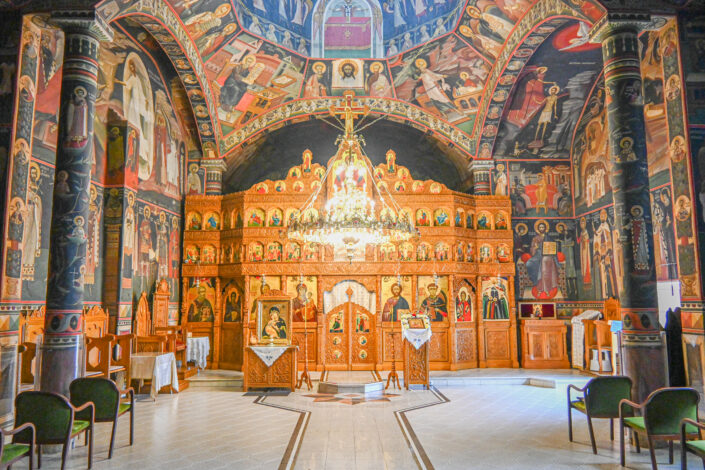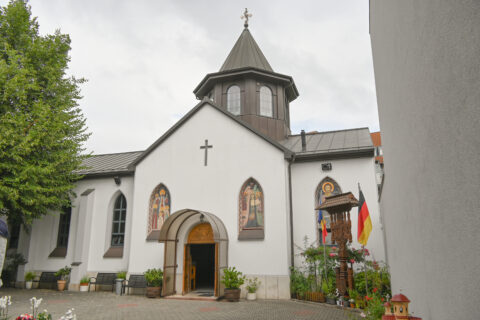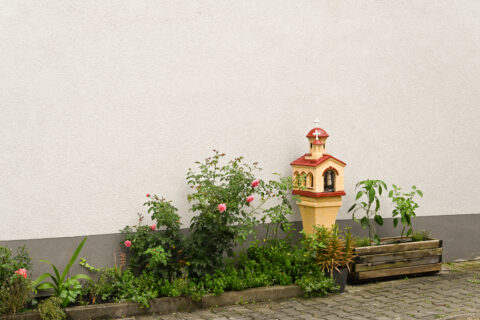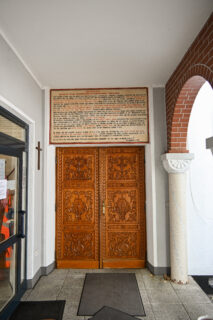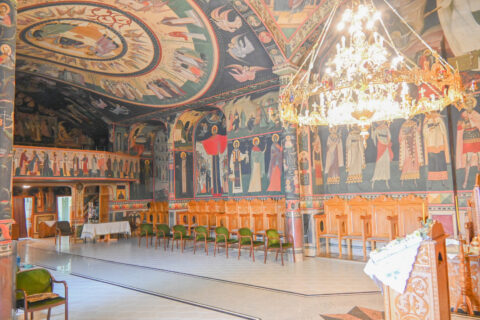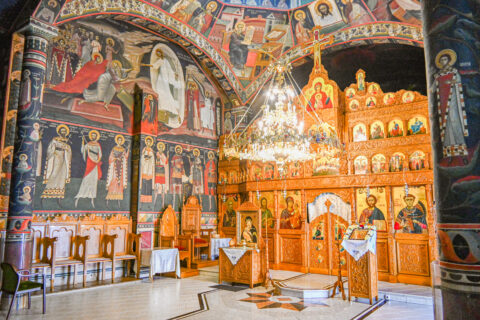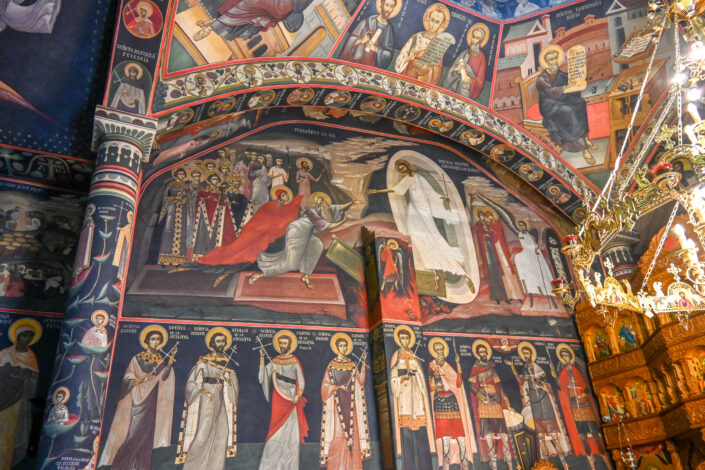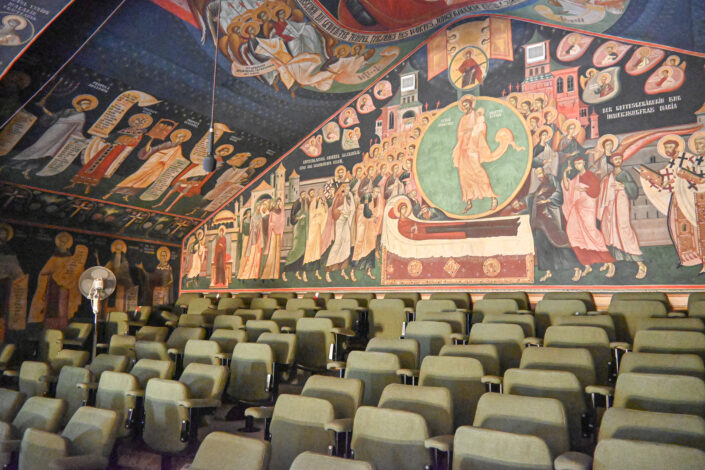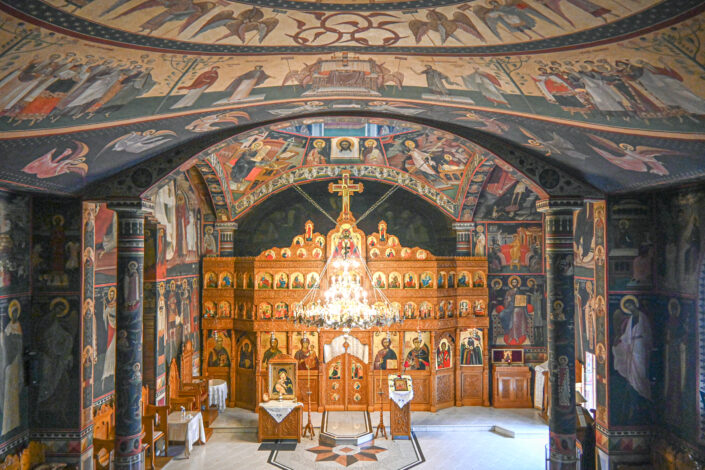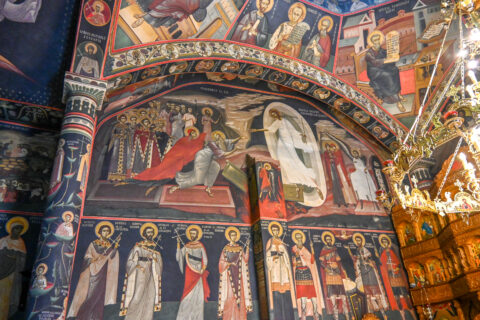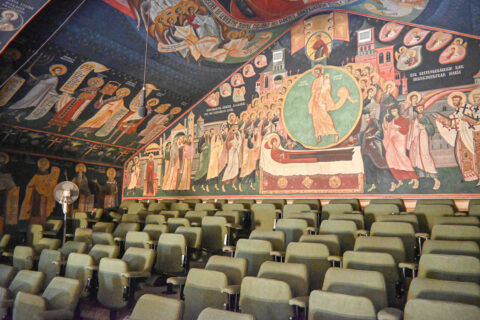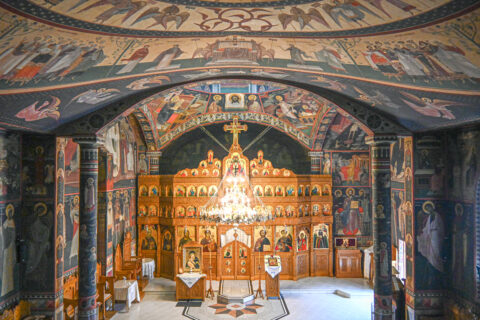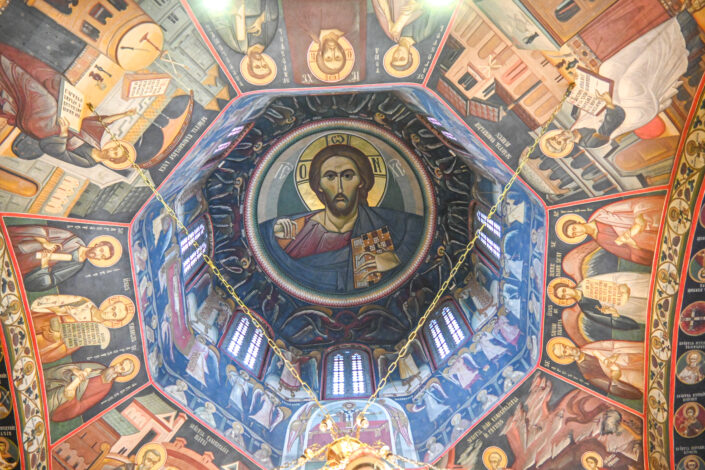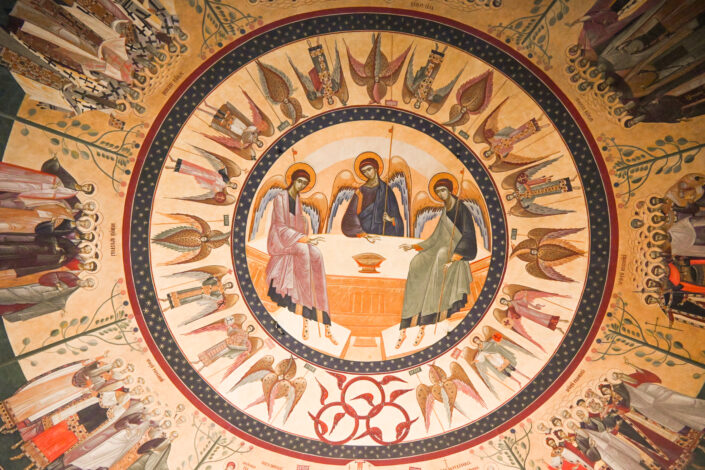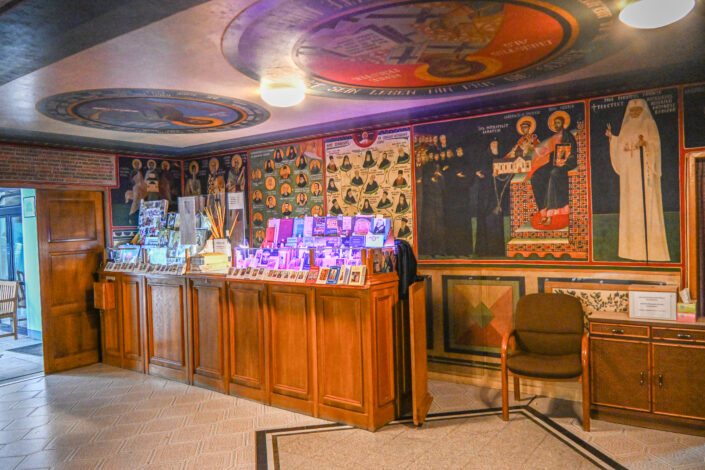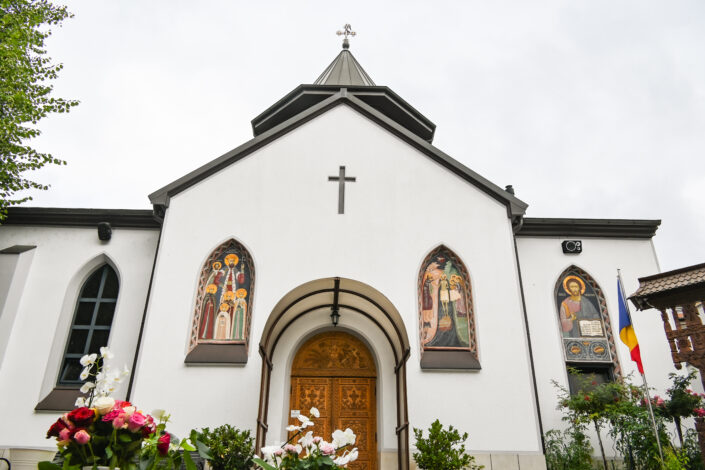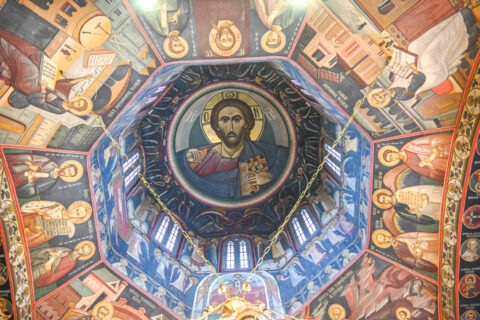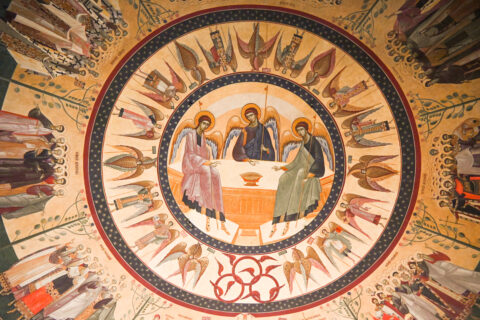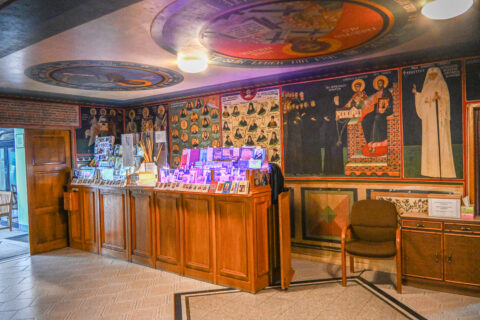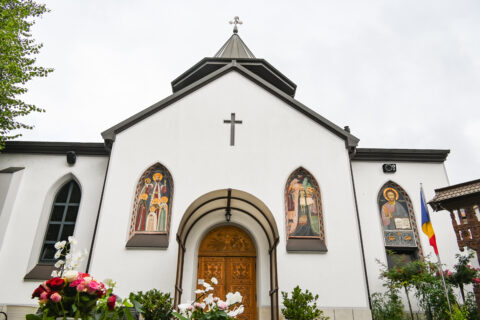April: The Romanian Orthodox Metropolis – faith, community and commitment in the heart of Europe
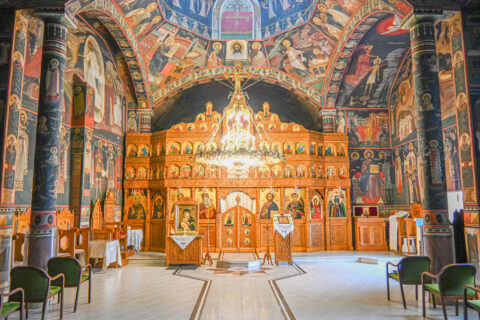
In the heart of Nuremberg, an important religious institution has its headquarters at Fürther Straße 166–168: the Romanian Orthodox Metropolis for Germany, Central and Northern Europe. It belongs to the Romanian Orthodox Church and is recognized as a public corporation. Its tasks extend far beyond the Sunday church service—it is a spiritual center, social project, cultural mediator, and identity-forming place for tens of thousands of Orthodox Christians from Romania and other countries. In our Interreligious Calendar, we show this building in April.
Spiritual Centre with History
Following the political change in Romania, the Romanian Orthodox Metropolis existed. In 1993, the Holy Synod of the Romanian Orthodox Church decided to create a separate ecclesiastical structure for the growing Romanian diaspora in Germany and Central Europe at the request of several priests and believers. Auxiliary Bishop Dr. Serafim Joantă was appointed Metropolitan as early as 1994. The metropolis grew rapidly and today comprises two administrative units: the Archdiocese for Germany, Austria, and Luxembourg, based in Nuremberg, and the Diocese for Northern Europe, based in Stockholm. Today, it is responsible for more than 200 parishes, branches, and monasteries in six countries. The cathedral of the metropolis in Nuremberg is dedicated to the Holy Martyr Demetrios of Thessaloniki. It serves as both the seat of the metropolitan and the home church for many Orthodox believers in the region. The church, acquired by the Evangelical Lutheran Church in 1999, was extensively remodeled. The well-known Romanian artist Prof. Grigore Popescu gave the church a dome, extended it, and painted the interior in the traditional Byzantine style with frescoes. The cathedral was solemnly consecrated in 2006, in the presence of the then Patriarch Teoctist, among others.
The Community in Nuremberg
The Romanian Orthodox community in Nuremberg was founded in 1976, initially as a branch of the Munich community. It has been independent since 1996. Today, Father Teofil Herineanu—the grandson of the esteemed Archbishop Teofil Herineanu of Cluj—is the parish priest and also the managing director of the archdiocese.
In addition to church services, the congregation also offers activities for families, including a Sunday kindergarten and courses on the Romanian language and culture. This makes it an important cultural meeting place for people who do not want to forget their origins but also want to gain a foothold in their new homeland.
The Metropolitan Centre: more than just a place of worship
The Metropolitan Center includes the cathedral and the parish administration, the monastery of the “Holy Martyrs Brâncoveanu,” the school for icon painting “St. Evangelist Luke,” and a large conference room for up to 200 people. In 1999, the Lutheran Epiphany Church relinquished control of some listed buildings.
The icon painting school is run by Sister Marina Muntean, a talented artist whose works adorn many Orthodox churches in Germany. Her school attracts both Romanian and German pupils. It is an example of how art, faith, and education are combined in the Orthodox tradition.
Social Project: Hope for Children in Moldova
The Metropolis is also socially committed. The ‘Scholarships for Poor Children in Moldova/Eastern Romania’ project has been running for several years. A monthly sum of 30 euros supports children in the particularly poor regions of Vaslui and Botoșani. These children frequently live in impoverished conditions, often lacking even a daily warm meal.
Thanks to cooperation with local religious organizations on site—the Popăuți monastery and the Negreşti parish— it is ensured that the donations go directly to those in need. Vouchers for food and school materials provide support. Believers in Germany can support the project with donations and thus make a tangible contribution to alleviating poverty.
Ecumenical Commitment and Dialogue
The Romanian Orthodox Metropolis is also an active dialogue partner in the ecumenical dialogue in Germany. It is a member of the Association of Christian Churches (ACK) and regularly participates in theological dialogue with the Evangelical Church in Germany (EKD). Metropolitan Serafim himself leads the Orthodox delegation in this dialogue.
The Metropolis also publishes two important magazines: Deisis, a theological and cultural magazine in German and Romanian, and the monthly newsletter Scrisoare Duhovnicească (‘Spiritual Letter’), which informs the faithful about events, religious topics, and current developments.
The Romanian Orthodox Metropolis for Germany, Central, and Northern Europe is much more than a church organization. It is a living place of faith, a center of cultural identity, a space of charity, and a bridge builder between East and West. With its cathedral in Nuremberg as its spiritual center, it has an impact far beyond the city’s borders — spiritually, socially, and culturally.
The icon painting school is run by Sister Marina Muntean, a talented artist whose works adorn many Orthodox churches in Germany. Her school attracts both Romanian and German pupils. It is an example of how art, faith, and education are combined in the Orthodox tradition.
Social Project: Hope for Children in Moldova
The Metropolis is also socially committed. The ‘Scholarships for Poor Children in Moldova/Eastern Romania’ project has been running for several years. A monthly sum of 30 euros supports children in the particularly poor regions of Vaslui and Botoșani. These children frequently live in impoverished conditions, often lacking even a daily warm meal.
Thanks to cooperation with local religious organizations on site—the Popăuți monastery and the Negreşti parish— it is ensured that the donations go directly to those in need. Vouchers for food and school materials provide support. Believers in Germany can support the project with donations and thus make a tangible contribution to alleviating poverty.
Ecumenical Commitment and Dialogue
The Romanian Orthodox Metropolis is also an active dialogue partner in the ecumenical dialogue in Germany. It is a member of the Association of Christian Churches (ACK) and regularly participates in theological dialogue with the Evangelical Church in Germany (EKD). Metropolitan Serafim himself leads the Orthodox delegation in this dialogue.
The Metropolis also publishes two important magazines: Deisis, a theological and cultural magazine in German and Romanian, and the monthly newsletter Scrisoare Duhovnicească (‘Spiritual Letter’), which informs the faithful about events, religious topics, and current developments.
The Romanian Orthodox Metropolis for Germany, Central, and Northern Europe is much more than a church organization. It is a living place of faith, a center of cultural identity, a space of charity, and a bridge builder between East and West. With its cathedral in Nuremberg as its spiritual center, it has an impact far beyond the city’s borders — spiritually, socially, and culturally.
